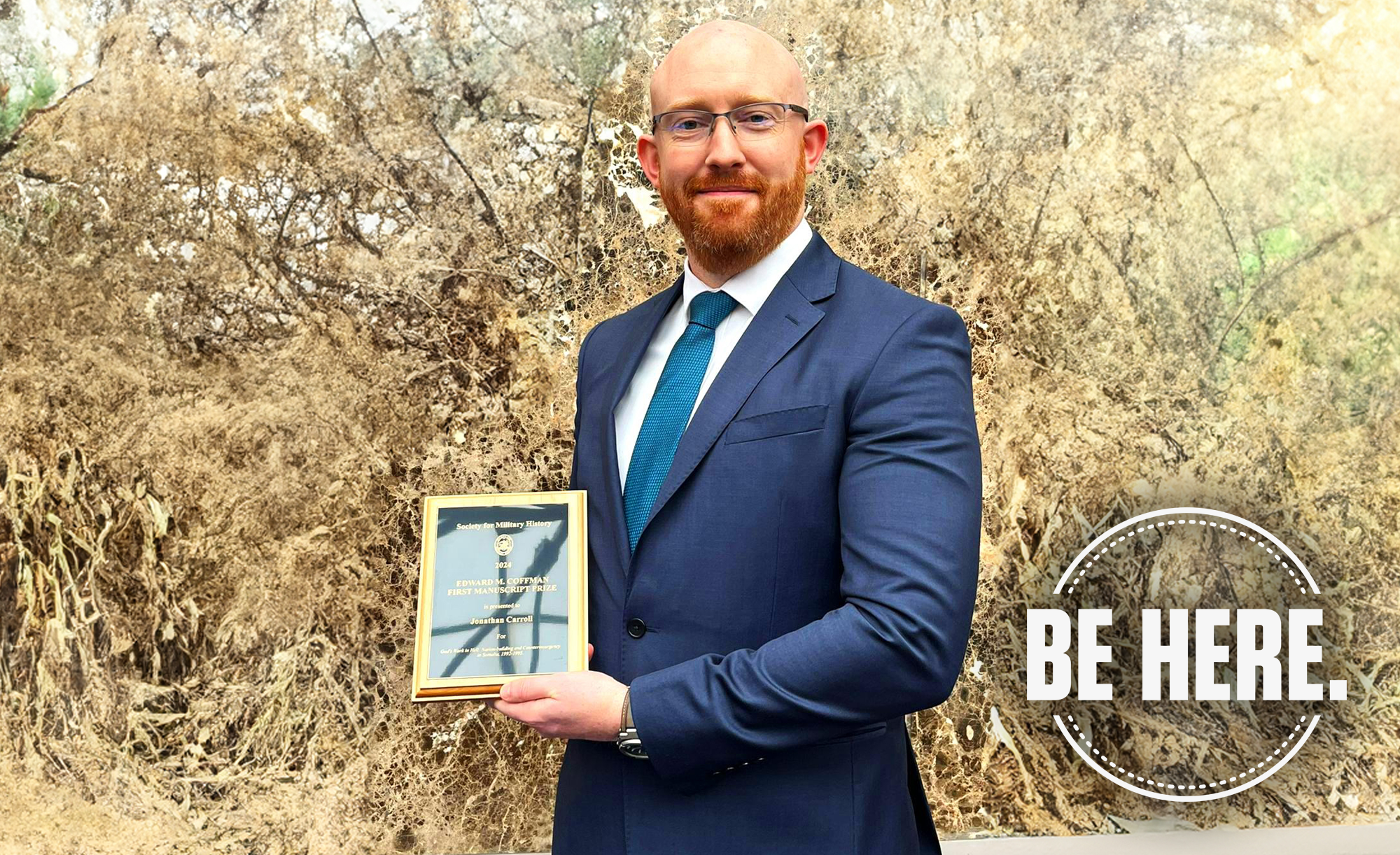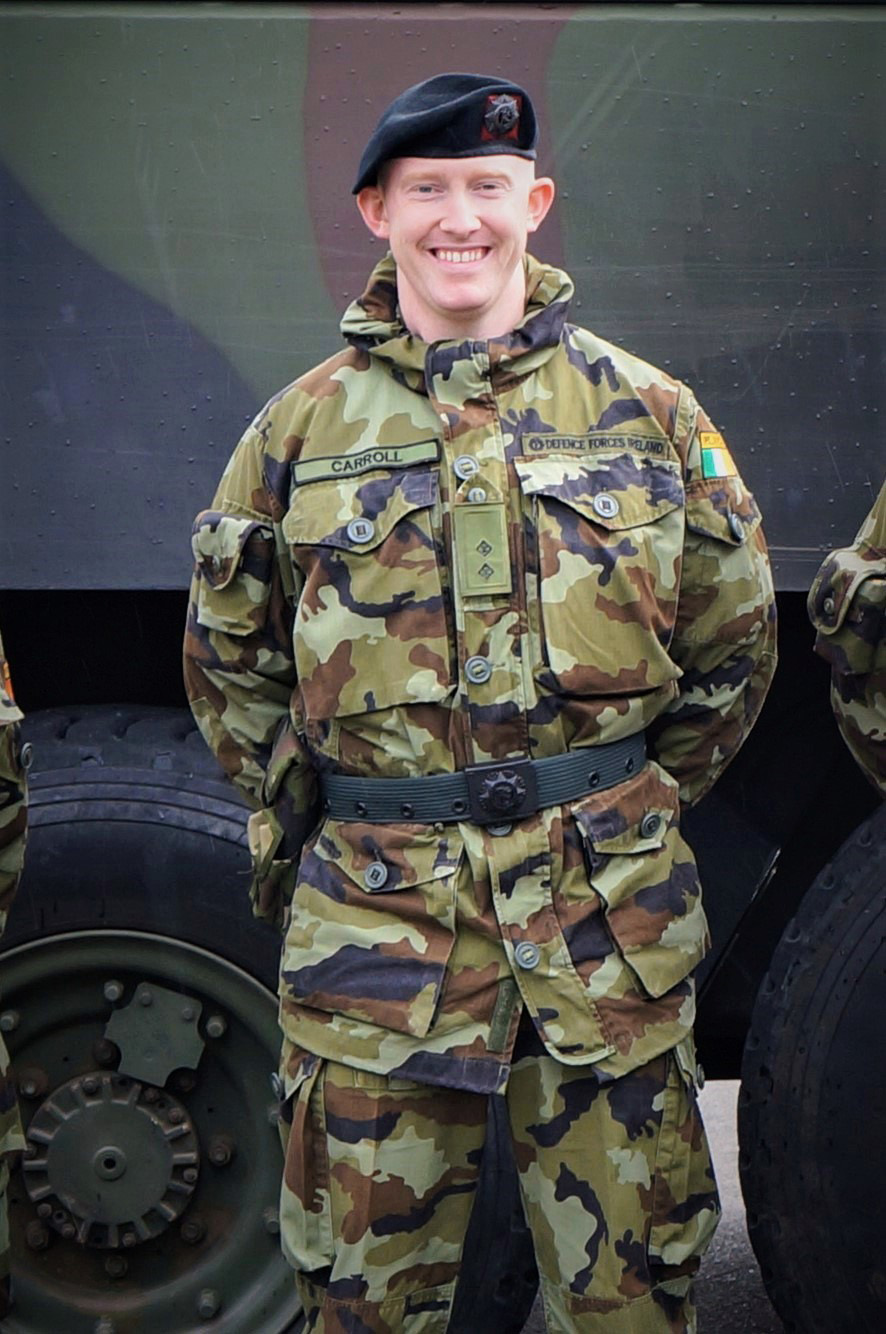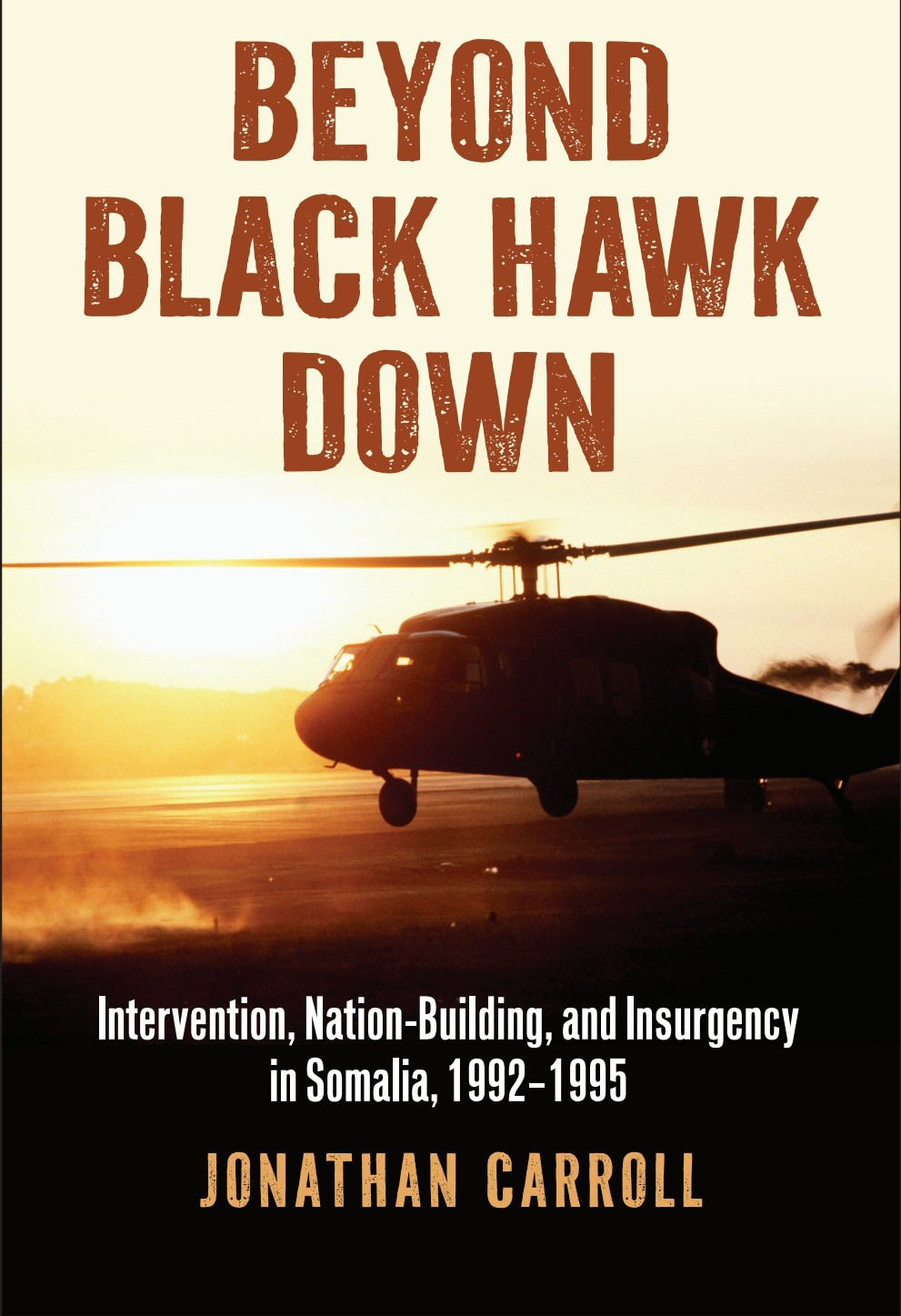
Dr. Jonathan Carroll ’23, a Ph.D. graduate in military history, has made history himself by becoming the first Texas A&M University student to win the highly competitive Edward M. Coffman First Manuscript Prize from the Society for Military History for his doctoral dissertation “God’s Work in Hell: Nation Building and Counterinsurgency in Somalia, 1992-1995.”
“I am honored to be the first Texas A&M student to win the prize, and especially to be the first Irishman to do so,” said Carroll, whose home is the small, midlands town of Celbridge. “I couldn’t have written this anywhere else than at A&M.”
“God's Work in Hell” focuses on the U.S. military intervention in Somalia’s Civil War in the early 1990s.
While the 1993 “Black Hawk Down” incident is the most well-known aspect of the mission — popularized by the 2001 Oscar-winning film — his work examines the broader complexities of the entire operation.
“Two American Black Hawk helicopters were shot down in the Somali capital of Mogadishu, and in the ensuing battle to rescue the crews, 18 Americans were killed and over a thousand Somalis — most of them civilians — were killed or wounded,” Carroll said of the incident, which was part of the Battle of Mogadishu.
However, Carroll wanted to explore deeper into the subject and chose to write the first military history of the entire operation.
“[Black Hawk Down] was just one day in the middle of a 2½-year nation-building operation, 90% of which was successful,” he said. “I wanted to start the story from the very beginning."

Somalia in the 1990s went through a civil war after the overthrow of its dictator, Mohamed Siad Barre, Carroll said. Amidst this turmoil was one of the worst famines of the 20th century. In the span of two years, Somalia’s government completely collapsed and over half a million people lost their lives.
“The term ‘failed state’ was originally coined in the 1990s to describe Somalia during its civil war; it was the only way to explain the country's situation at the time,” Carroll said.
In response, the United Nations and the United States intervened in Somalia by sending troops to end the famine, cease the fighting and rebuild the country.
“When America intervened in Iraq and Afghanistan, there was already a government in place,” Carroll said, “but in Somalia, there was nothing, so this operation was basically rebuilding the country from the ground up. It was the most ambitious kind of nation-building mission in history at that point.”
When this intervention began, everything was peaceful, he said, but violence broke out between the U.N., the U.S. and a Somali faction led by Mohamed Farrah Aidid, a former soldier and politician.This conflict ultimately led to the Black Hawk Down incident., after which the U.S. pulled out of Sololia.
“This weakened the remaining U.N. mission, rendering it a failure,” Carroll said. “The U.N. withdrew from Somalia in 1995, leaving the mission as a tragic failure.”
Carroll’s decision to focus his dissertation on Somalia in the 1990s was largely influenced by his 12 years of service in the Irish Army, which is part of the Defence Forces of Ireland.
“It wasn't until my time in the army was coming to an end that I learned that Irish troops were a part of this operation in Somalia,” Carroll said. “All of a sudden, this incident that I was already interested in had a more personal resonance to me because I was part of a military force that served there.”
Carroll originally applied to a Ph.D. program in Ireland but found that few European institutions had the funding or support he needed to complete this project, prompting him to explore other options.

“Texas A&M is probably one of the best universities in the world for military history. All of the research support and quality historians are here,” Carroll said. “And free refills at most restaurants on top of that; I’ve never had that in my life!”
Based on Texas A&M’'s reputation, Carroll took the risk and left home in 2018.
“I left the army, packed my bags and, not knowing the pandemic was coming, basically waved goodbye to my family for five years,” he said.
Carroll also chose Texas A&M for the opportunity to work with professor Dr. Brian McAllister Linn, who retired in 2024 after teaching military history at Texas A&M for over 30 years. Although Linn didn’t specialize in Somalia, he authored several books on military history and is regarded by Carroll as one of the foremost military historians of his generation.
“As a historian, he knew how to craft a story, how to do the structural work of writing that keeps readers engaged,” Carroll said. “A lot of academic books can put you to sleep, but Linn doesn’t write like that. He can publish, but more important, he knows how to write well.”
“Thousands of Aggies were educated by Linn, and some of the brightest Ph.D. students that came out of the Department of History worked under him,” he continued. “I count myself grateful to have been one of them.”
To complete his dissertation, Carroll visited several international institutions and archives, like the Irish Military Archives in Dublin, the U.N. headquarters in New York and the U.S. Marine Corps History Division in Quantico.
“The research process was like being a detective,” Carroll said. “I interview different witnesses who each have their own version of events and then consider if they're account is accurate, or if they’re misremembering. That’s what historians do: they track down the evidence.”
Carroll began writing the dissertation in 2019 and completed it in 2023. During those four years, he went through about a quarter of a million to 300,000 documents and files. In fact, during his extensive research, Carroll made an unexpected and personal discovery.
“I found a list of all the Canadian soldiers who served in Somalia, and I came across a family name,” Carroll said. "When I mentioned it to my aunt, she told me that my second cousin had served in the Canadian Army. It turns out this guy, who was related to me, but whom I'd never met, had served in the exact operation that I was writing about in my book. That made it feel more real; I realized I was writing a book about events in which a lot of the people involved were still alive.”
Without Texas A&M, and the fantastic people I worked with there, this book simply wouldn’t exist.
After completing his dissertation and Ph.D. at Texas A&M, Carroll, based on the quality of A&M’s graduate program, and its reputation, was offered a position as an associate professor of military history at the British Army’s Royal Military Academy Sandhurst in the United Kingdom, one of the oldest military academies in the world. He continues to make history as the first Irish-born military historian to serve on the faculty.
“I was quite sad to leave Texas A&M, but all good things must come to an end,” Carroll said. “I couldn't have been the first Aggie to achieve this honor without the Aggie part.”
“I can’t emphasize enough how crucial the funding support I received from the College of Arts and Sciences was,” Carroll continued. “Without Texas A&M, and the fantastic people I worked with there, this book simply wouldn’t exist.”

